Speech &
Language Therapy
in Menlo Park & San Jose, CA
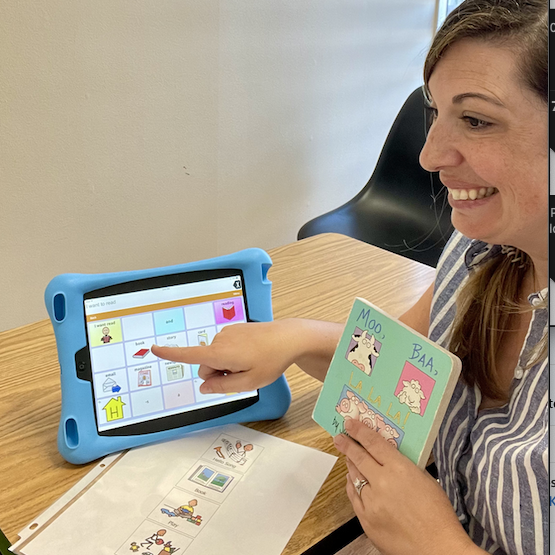
Empowering Voices Since 1978
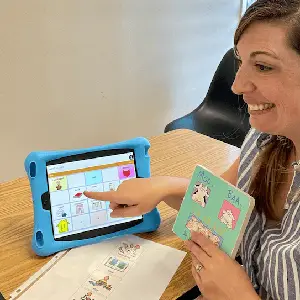
Peninsula Associates Speech Therapy Services provides skilled, personalized care to children and adults. Our skilled clinicians in Menlo Park and San Jose are here to help you or your loved one using innovative therapy techniques and a holistic approach.
Reach out today to schedule an appointment and discover why families and professionals across Silicon Valley trust us for speech-language therapy.
Our Speech & Language Therapy Services
We offer comprehensive speech, language, and feeding therapy services to address a wide range of communication and feeding needs. Whether you’re seeking support for a child, teen, or adult, our experienced clinicians are here to help with evidence-based, personalized care.
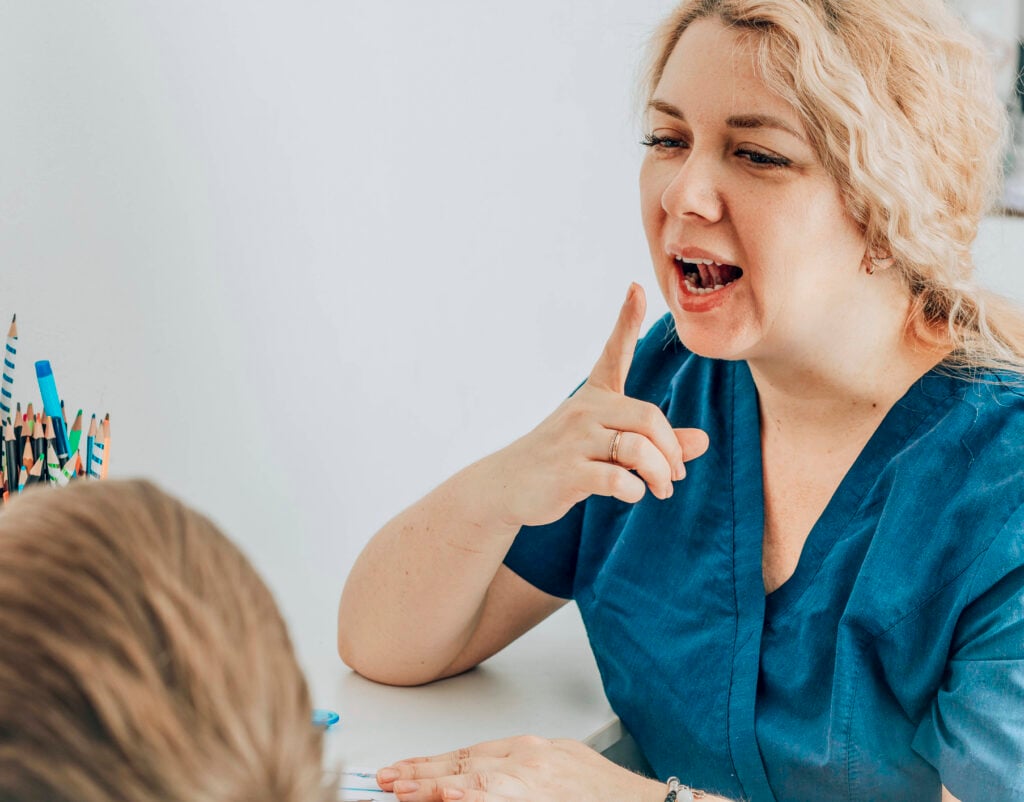
Apraxia & Motor Speech Disorders
Improve your clarity and gain confidence in your speech. Our clinicians use specialized approaches to help children and adults make lasting progress with apraxia and motor speech disorders for more effective communication.
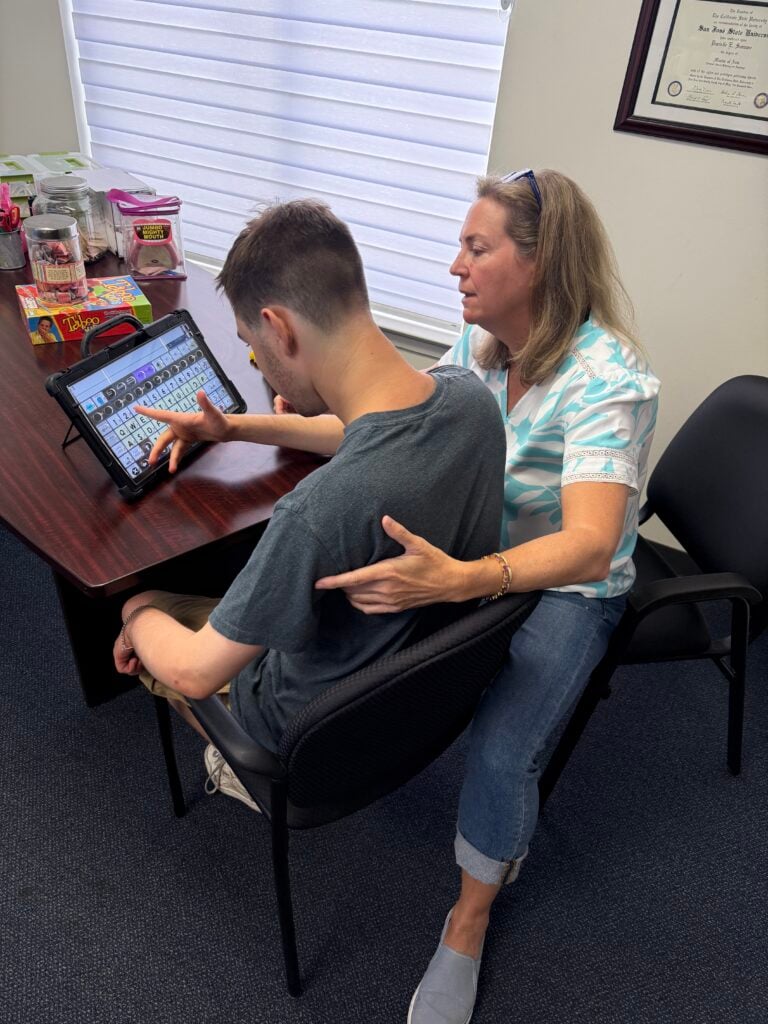
Augmentative & Alternative Communication (AAC)
Increase your ability to communicate with personalized AAC tools designed for individuals with limited verbal expression. We evaluate, customize, and support the use of AAC systems to help each client connect meaningfully with others.
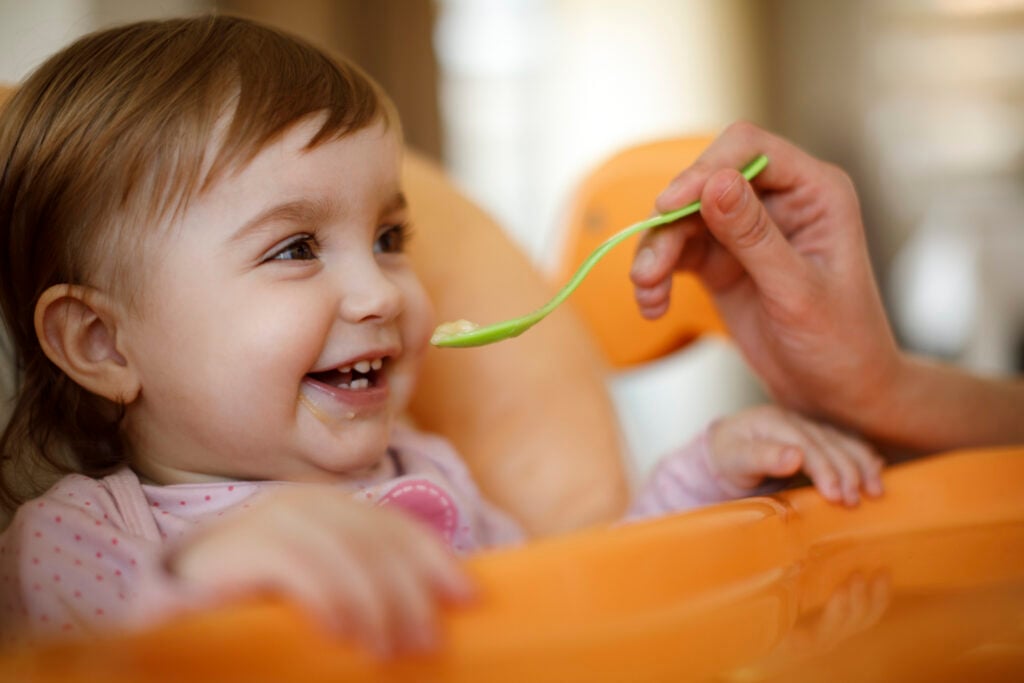
Feeding Therapy
Make mealtimes safer and more enjoyable. We help children and adults who experience difficulties with chewing, swallowing, and food aversions. Our clinicians address oral motor skills and sensory sensitivities to help children and adults develop positive mealtime habits.
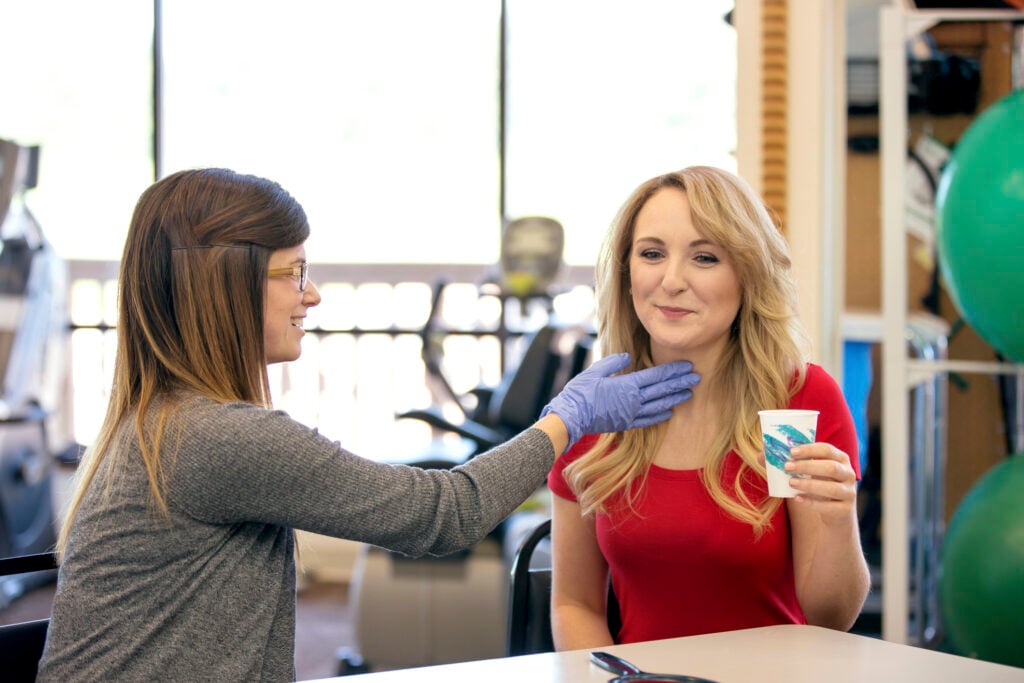
Orofacial Myofunctional Therapy
Address oral motor challenges that affect clear speech and optimal function. Our therapists work on tongue posture, jaw strength, and coordination to improve breathing, articulation, and oral health.

Voice Therapy & Gender Affirming Voice
Improve your vocal quality and reduce strain through customized therapy techniques. We support clients with vocal disorders and provide gender-affirming voice therapy in a respectful, supportive space.
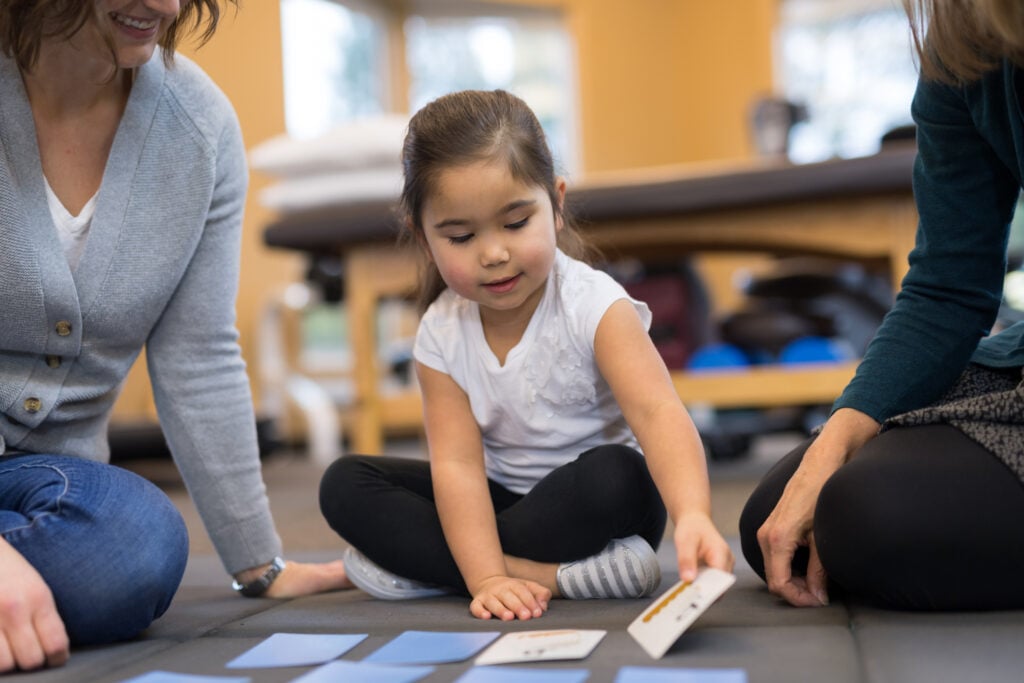
Language Therapy
Build meaningful communication skills with therapy that mirrors real-life interactions. Whether through play-based sessions for young children or natural conversation for teens and adults, we focus on the progression of language in everyday settings.
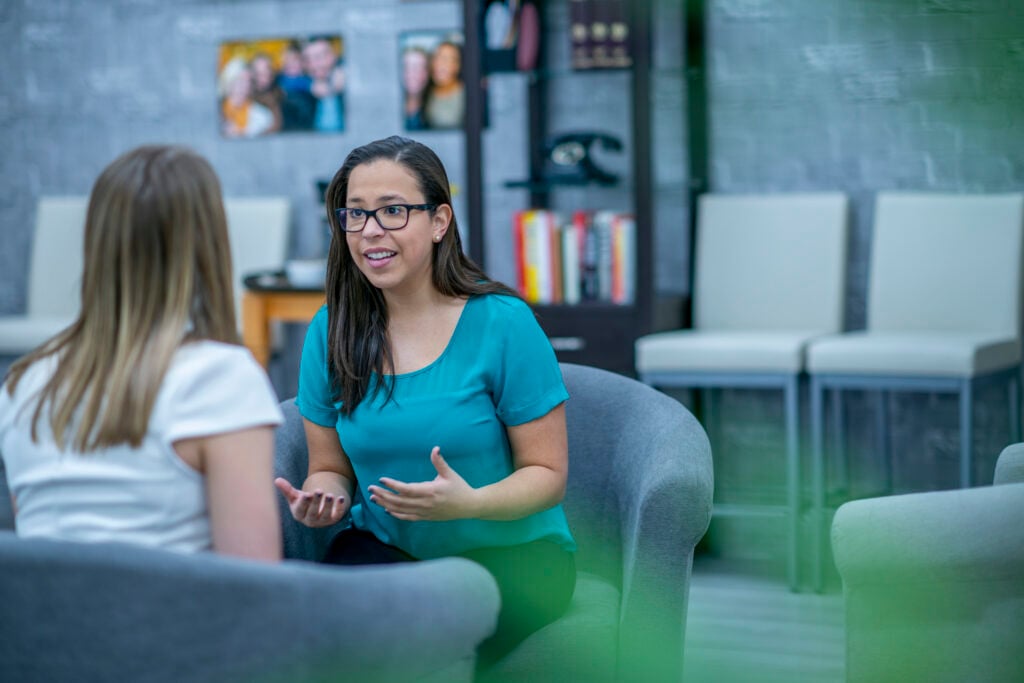
Speech Fluency
Address stuttering and other fluency challenges with strategies that promote forward-moving, confident speech. Our therapists create a supportive environment where clients can build the skills they need to communicate freely and effectively.
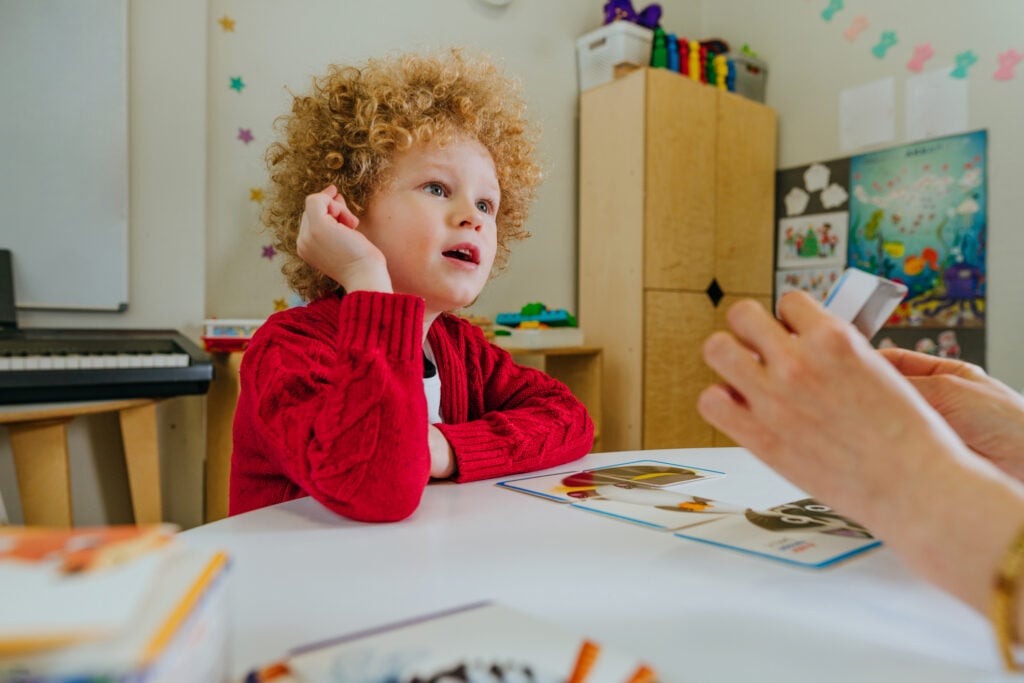
Speech Intelligibility & Delayed Speech
Give your child the support to be fully understood by others. We work with children experiencing delayed speech development and reduced intelligibility to build foundational communication skills for clear, effective speech patterns.

Accent Modification
Improve your speech clarity and reduce communication barriers in professional or social settings. Our accent modification program helps clients speak more clearly while maintaining their cultural identity.
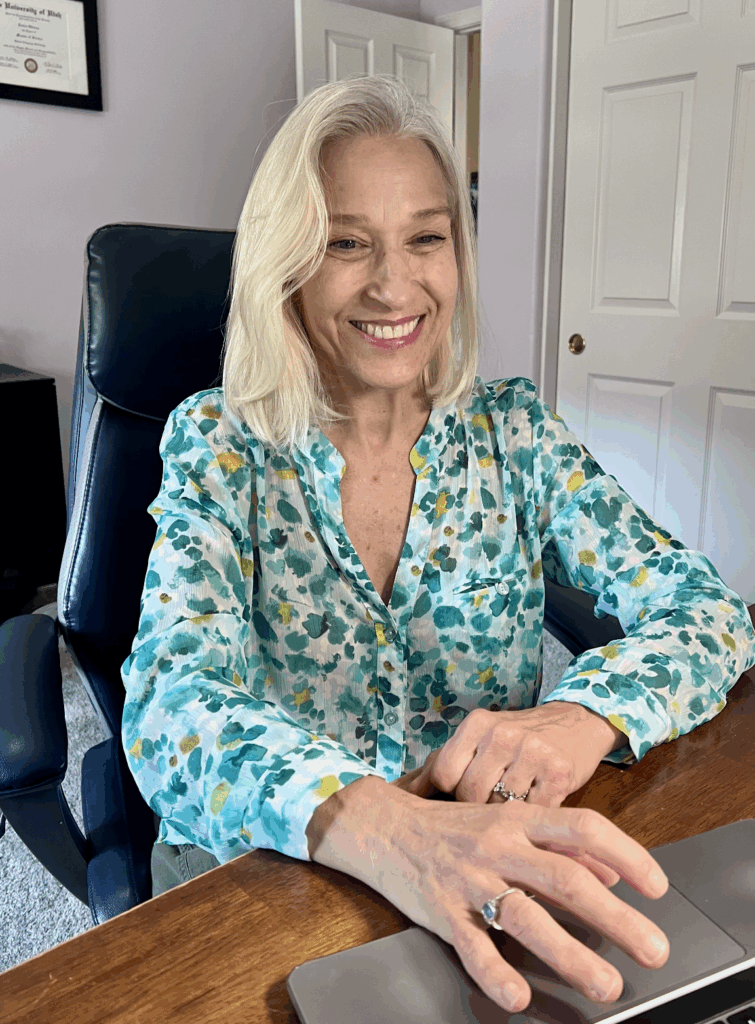
Teletherapy
Get the same high-quality speech therapy services from the comfort of your home. Our teletherapy sessions are secure, convenient, and effective for busy families or clients who prefer virtual care.
Welcome to Peninsula Associates
Speech Therapy Services
Since 1978, Peninsula Associates Speech Therapy Services has set itself apart with its reputation of providing the highest quality of care throughout the community. We serve in varied settings: private practice, public, private, and residential schools, hospitals, skilled nursing facilities, home health agencies, and telepractice.
Our mission is to provide the highest quality speech-language and learning services to our clients, colleagues and community and to maintain a positive, nurturing environment for our speech-language pathologists and learning specialists.
Schedule a Free Phone Consultation
Curious if speech therapy is right for you or your child? Schedule a free phone consultation with one of our licensed speech-language pathologists. We’ll take the time to understand your concerns, walk you through your options, and show you how our personalized approach can make a meaningful difference.
See What Our Clients Are Saying
Frequently Asked Questions
Have questions about speech or language therapy? Visit our FAQ page to find answers to commonly asked questions about our therapy services. Or, give us a call at (650) 709-9780, and a member of our team will be happy to help.
Contact Us Today to Get Started
Every successful journey begins with the first step. Whether you’re seeking support for yourself or a loved one, your first step is to reach out to Peninsula Associates Speech Therapy Services to schedule an appointment. Our skilled speech-language pathologists are ready to listen, guide, and help you make progress with confidence.
Don’t wait to start building stronger communication skills. Contact us today to schedule your appointment.
